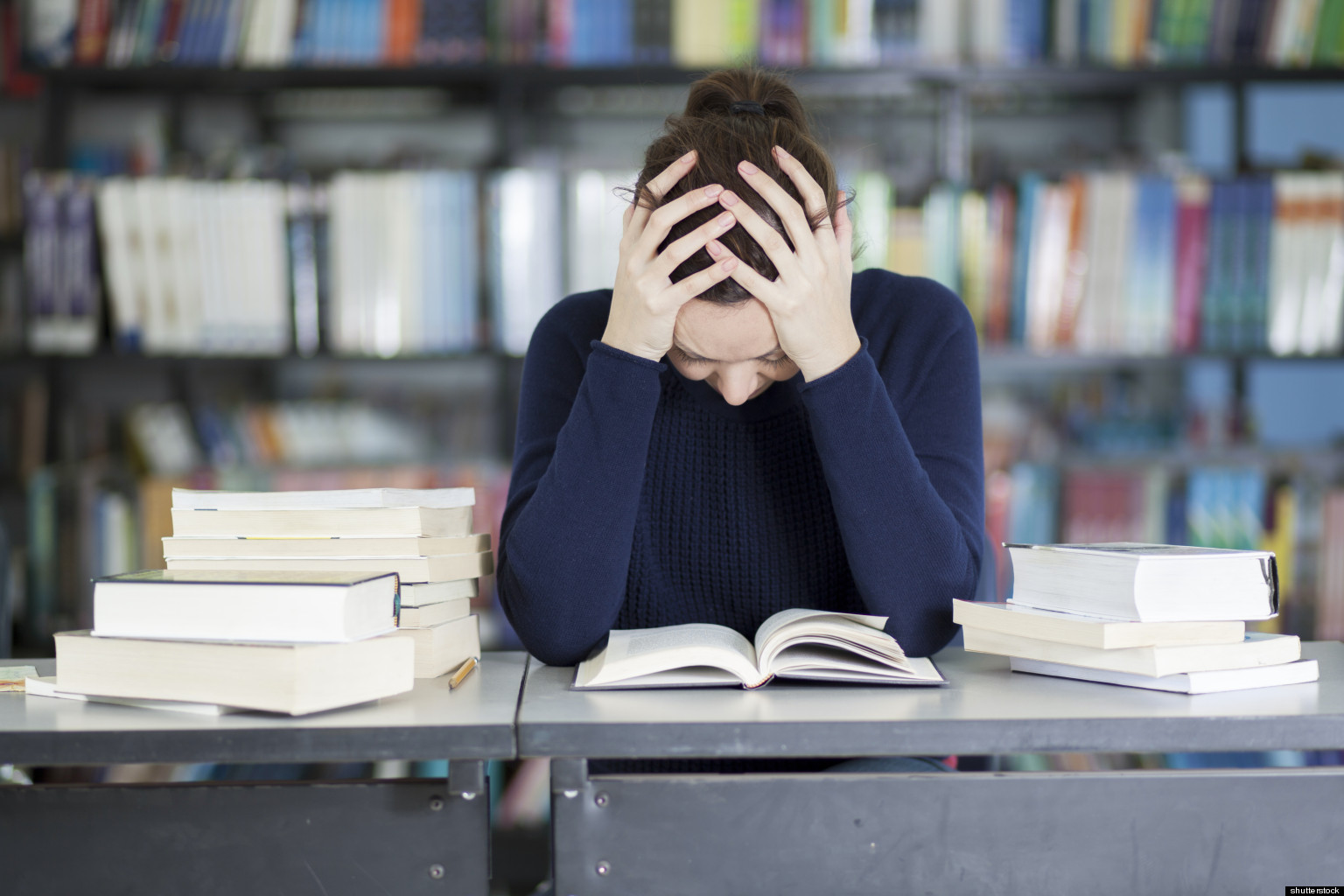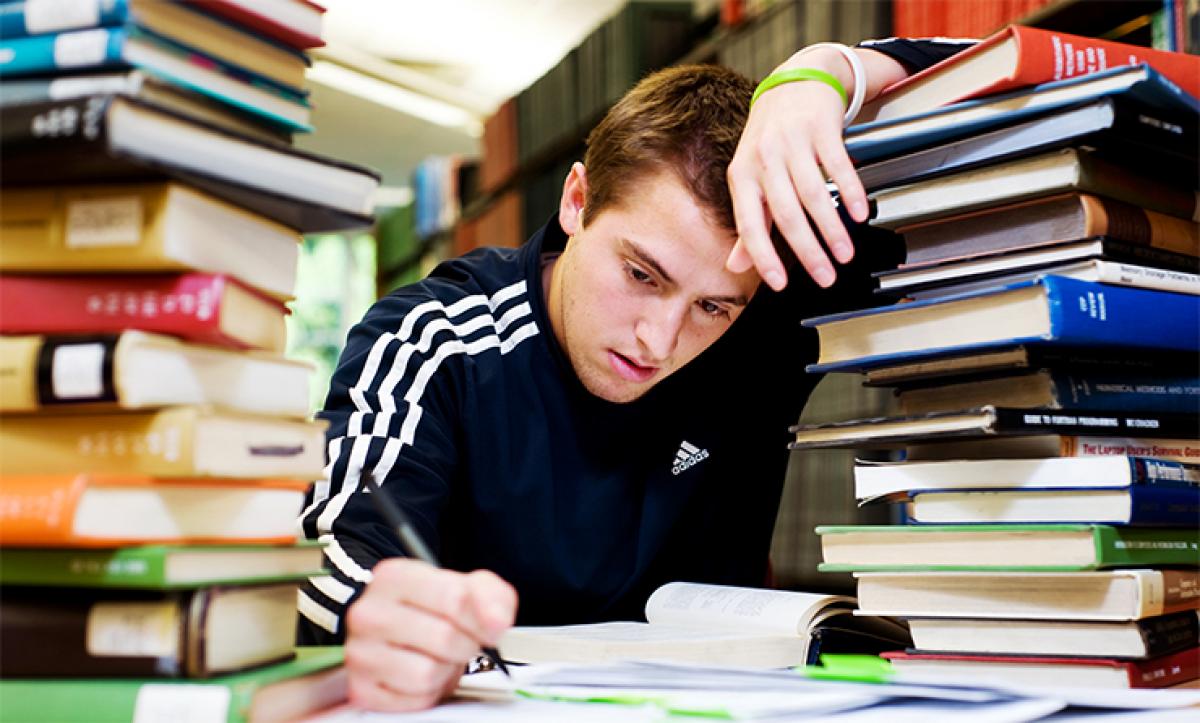How College Students Perceive Academic Stress - Does It Affect Their Mental Health?
A Rutgers New Jersey Medical School study found that academic stress hurts the mental health of some groups of college students more than others. This link was made worse by the COVID-19 pandemic.
Author:Paolo ReynaReviewer:James PierceAug 13, 2022123 Shares1.6K Views

According to a study conducted by the Rutgers New Jersey Medical School on how college students perceive academic stress, certain subgroups of college students are more susceptible to the negative effects of academic stress on their mental health than others.
This correlation was further worsened by the pandemic caused by the COVID-19 virus.
Researchers found a significant correlation between perceived academic stress and poor mental well-being in all of the students, but it was most pronounced in students who identified as nonbinary, were female, or were in the second year of a four-year program.
The findings were published in the journal Frontiers in Psychology.
What Is Academic Stress?
The term "academic stress" refers to the kind of mental stress that comes from things that have to do with how well someone does in school.
Academic stress is when a student's body reacts to academic demands that are more than they can handle.
Estimates say that 10–30% of students feel some level of academic stress at some point during their time in school.
Students at universities with high academic standards do suffer a lot from academic stress.
Most people say that oral presentations, academic overload, not having enough time to meet commitments, and tests are the most stressful parts of the school.
How Stress Affects College Students And Their Mental Health
Almost everyone has felt stressed at some point in their lives, but the level of stress and how we deal with it are different for each person.
High levels of stress about how well you do in school are bad for your mental and physical health.
Ironically, academic stress also hurts a student's ability to do well in school.
Causes Of Stress During College
Stress from school can happen to students at all levels, whether they are performing in front of an audience, taking an exam, or doing something else.
But it's important to remember that college students have a few more things to worry about than students at other levels of education.
Here are some of the most common things that make college students feel stressed:
Finances
Some people decide not to go to college because of a number of things, and one of them is the cost of tuition.
Due to tuition and other college-related costs, many people who go to college have trouble making ends meet.
Working and going to school at the same time can be hard on a student's mental health as they try to balance their personal, school, and work lives.
You could try to get scholarships, grants, or even loans to help with this problem.
Having Friends Or Not Having Any
One of the hardest things for a lot of college students is making time for themselves and making friends.
This is especially hard for people who have to work to pay for college.
If a student doesn't spend enough time with friends or doesn't have any friends at all, it hurts their mental health because they don't have much time to "recharge."
Homesickness
Think about this: One day, you're a carefree 17-year-old in high school who eats home-cooked meals every day and has the best time of his or her life.
After a few months, you are legally an adult, you get your first job, and you probably move thousands of miles away from everything you have ever known to go to college.
Even just thinking about this kind of change stresses you out.
College students are no longer close to their families and are in charge of their own lives.
Coursework
For many students, the change from high school to college can be hard for a number of reasons.
Coursework is one of the main things that stress out college students.
Students often have trouble meeting deadlines and keeping up with the extra work that comes with going to college.
A Study On How College Students Perceive Academic Stress
“„"This study shows that college students are not uniformly impacted by academic stress or pandemic-related stress and that certain groups should be offered additional resources and support," said study author Xue Ming, a professor of neurology at Rutgers New Jersey Medical School. "The findings support prior studies that have shown that nonbinary adults face adverse mental health outcomes when compared to male and female-identifying adults."
According to the American Psychological Association, up to 87 percent of U.S. college students say that education is their main source of stress.
This stress comes from demanding course loads, studying, time management, classroom competition, financial worries, family pressures, and trouble adapting to new environments.
However, few studies have looked at how this stress directly affects mental health.
The goal of the study was to find out if there is a link between college students' feelings of academic stress and their mental health, to find out if there are different levels of academic stress and mental health in different groups, and to find out how the COVID-19 pandemic is making people feel stressed.
Researchers asked 843 college students between the ages of 18 and 30 questions from the Short Warwick-Edinburgh Mental Well-Being Scale (SWEMWBS), which measures mental well-being and positive mental health.
And also questions from the Perception of Academic Stress Scale (PAS), which measures sources of perceived academic stress and three main academic stressors: academic expectations, workload and exams, and academic self-perception.
Female students reported the most stress and the worst mental health, followed by nonbinary students.
Both groups said they had more stress because of COVID-19 than men.
Students in their second year of the school said they were more stressed out by school and didn't feel as good mentally as students in other years.
On the Perception of Academic Stress Scale, which included stress from COVID-19, first-year students got the best scores.
The researchers think that second-year students might be more affected by academic stress as a whole because they start taking more advanced courses, have to deal with heavier workloads, and try out different majors.
Other reasons could be that they study more and have fewer social support networks and ways to deal with problems than upper-class students.
“„“Colleges should consider offering tailored mental health resources to these groups to improve students’ stress levels and psychological well-being,” Ming said. “To raise awareness and destigmatize mental health, colleges can distribute confidential validated assessments, such as the PAS and SWEMWBS, in class and teach students to self-score so they can monitor their stress and mental well-being.”
The researchers also suggest that colleges offer stress-reduction and coping strategies like mindfulness meditation, cognitive behavioral therapy, and peer support groups to help students become more resilient.
People Also Ask
How Is Stress Perceived By College Students?
Students in college got an average PSS score of 19.13 (SD = 6.56).
Overall, 12.7% of people felt like they were under a lot of stress.
13.6% of people in healthcare colleges thought they had a lot of stress, while only 12.0% of people in other colleges did.
What Is Perceived Academic Stress?
Academic stress is the mental state of a student caused by constant social and self-imposed pressure in a school setting that drains the student's mental reserves.
Why Do Students Feel Academic Stress?
College students often feel stressed because they have more responsibilities, don't know how to manage their time well, change the way they eat and sleep, and don't take enough time for themselves.
Most first-year students can feel stressed out by the change from high school to college.
Conclusion
Now that you know how college students perceive academic stress.
Stopping the stigma is the best thing to do to help students deal with academic stress.
Spreading information about how academic stress affects students' mental, physical, and emotional health is one way to do this.
We can only solve or at least learn how to deal with academic stress if we keep talking about it and teaching each other about it.

Paolo Reyna
Author

James Pierce
Reviewer
Latest Articles
Popular Articles

